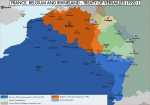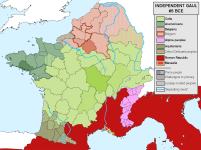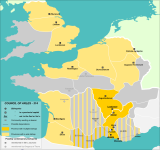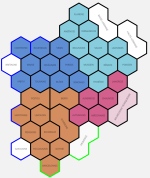On top of my mind, (keeping in mind this is just a map where elements are picked and placed because it looks fun, even if it was with some basic historical basis).
The broad idea is that France have a bit more weight in the peace settlement ITTL, and while British government was okay-ish with the Belgian claim in Zeeland as long Belgium committed back to strict neutrality, this situation might lead to some concession on this regard to keep the country being aligned too much with France and more along a dual influence from both London and Paris.
Eventually, a slightly longer war could as well mean a lengthier presence of retreating German armies trough Dutch territory and giving just enough popular support for the idea of an aforementioned exchange (arguably, possibly trough colonial compromises).
Of course, that would hardly bode well for political stability in the region, but on the other hand, the whole situation is unstable at best : I don't think there's much way for the Rhineland petty-states (which IMO are much more on the "what" end of the spectrum) to be accepted by the population, not have a strong nationalist drive, not force France to invest way too much forces and resources abroad for a dubious diplomatic gain (making it akin to a certain set of "petty-states acknowledged only by the supporting imperialist power they're bordering" that existed up to a week or so)





